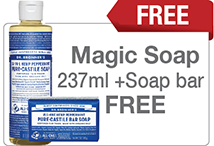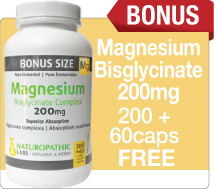Tocotrienols
Updated Nov. 01st, 2019
Did you know that vitamin E is much more than simply vitamin E? vitamin E is actually made up of eight different molecules, including four tocopherols and four tocotrienols. Research is showing that the different components of vitamin E have different effects in the body.
Interestingly, since the discovery of vitamin E in 1922, only 1% of all the research into vitamin E has been done on the tocotrienol forms because until recently, science has focused solely on the more biologically prevalent form of vitamin E, alpha-tocopherol.
It was initially believed that because alpha-tocopherol was more prevalent, it had greater effect in the body. However, since 2009 there has been a dramatic increase in the research being done on tocotrienols and this research is revealing that tocotrienols are stronger acting than the tocopherol forms of vitamin E.
What are Tocotrienols?
Tocotrienols are members of the vitamin E family and have a slightly different molecular structure than the better known tocopherol forms of vitamin E. Tocotrienols are fat soluble and are found naturally in very low levels in vegetable oils. Palm oil is a good source of tocotrienols, however, annatto is one of the only known food sources that contains only tocotrienols and not tocopherols. Hence supplementation is one of the only ways to get therapeutic levels of tocotrienols.
What are Tocotrienols used for?
Current research is showing that tocotrienols are potent antioxidants, proving to be more powerful acting than the tocopherol forms of vitamin E.
Tocotrienols have numerous effects on the body that tocopherols do not have including, neuro-protection, anti-cancer effects, anti-inflammatory properties, cardio-protective actions and cholesterol lowering effects. This makes tocotrienols useful in protecting against Alzheimer's, Parkinson’s and Huntington’s disease, as well as protecting against cancer, the damaging effects of diabetes, atherosclerosis and cardiovascular disease.
Some sources have shown that tocotrienols can penetrate fatty tissues more efficiently, which, combined with their powerful antioxidant effects, makes tocotrienols an excellent option for anti-aging through oral supplementation and in skin care products. In particular, it can combat the oxidative stress of skin exposed to the damaging effects of UV rays from the sun.
Early studies have demonstrated that the antioxidant effects of tocotrienols are protective against oxidative damage to osteoblasts (cells that strengthen bones and promote bone growth), making it potentially protective against osteoporosis.
Clearly, tocotrienols have a powerhouse of potential in the treatment of a number of diseases!
How do Tocotrienols work?
Tocotrienols work by reducing oxidative damage. Oxidative damage occurs when reactive oxygen species, such as free radicals, damage cells, proteins, lipids and DNA throughout the body. Antioxidants, such as tocotrienols, work to detoxify and stop the damage caused by reactive oxygen species.
It is the powerful antioxidant action of tocotrienols, combined with its fat soluble nature that allows tocotrienols to have protective effects against cardiovascular disease, cancer, chronic fatigue syndrome and neuro-generative diseases such as Alzheimer's.
Tocotrienols exert anticancer properties through cell cycle arrest and initiation of apoptosis (programmed cell death for damaged cells). What this means is, tocotrienols supports the body’s natural mechanisms for destroying cells that either are cancerous or potentially could become cancerous. Tocotrienols also reduce angiogenesis, which is the creation of new blood supply to cancerous cells.
The cholesterol lowering effects of tocotrienols can be attributed to its effects on enzymes that produce cholesterol in the body. Tocotrienols work by reducing lipids, lowering cholesterol production and increases HDL, which is the “good fat”. All of these actions make tocotrienols effective in treating cardiovascular disease and atherosclerosis.
How do you use it?
You can take tocotrienols by supplementing with vitamin E. However, you have to take a good look at your vitamin E supplement to know if it contains tocotrienols because many of them only contain the alpha-tocopherol form, or mixed tocopherols. To get the full benefit of tocotrienols, you must use a supplement that includes all of the forms of vitamin E, including tocotrienols.
Tocotrienols are best absorbed in oil based preparations due to its fat soluble nature. It is also best absorbed when taken with a meal, in particular a meal that includes fat.
You can also use red palm oil, which is a plant based oil that naturally contains tocotrienols, however heat will destroy vitamin E, so it is best used in smoothies, on salads or as a spread.























All of your Vitamin articles tht I have read so far have been good reads and have taught me a lot (or at the very least have reminded me of things that I had forgotten from organic chemistry class). The B vitamin articles, in particular, taught me that one vitamin can have many different forms and components, each with different benefits, effects, and potencies. I am very interested to learn more about the different tocotrienols and will be looking into this topic more. Thank you so much for the awesome starter! :)
Hello Rachel,
You're welcome! We're glad to hear that you found our Vitamin articles informative and helpful. It's great that they have served as a refresher for you and reminded you of important concepts from your organic chemistry class.
If you're interested in learning more about tocotrienols, we encourage you to explore this topic further. Tocotrienols are a group of compounds belonging to the vitamin E family, known for their antioxidant properties and potential health benefits. They have gained attention in recent years due to their distinct biological activities compared to other forms of vitamin E. You can explore the topic further in this article on vitamin e, https://www.nationalnutrition.ca/articles/supplements/supplement-articles-vitamin-e/
Have a healthy day